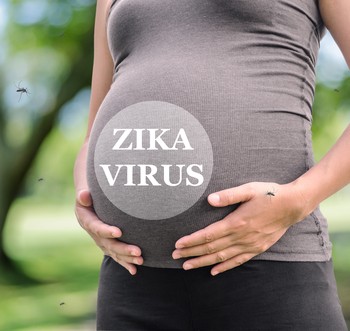Zika Virus Facts
- Zika virus was first identified in 1947 in monkeys in the Zika Forest of Uganda
- It belongs to the same family of viruses as Dengue Fever and is spread by the same mosquito
- There have been three other outbreaks of Zika Virus since 1950, and the current major outbreak in Brazil was first recognized in 2014-2015
- Zika virus is also thought to be transmitted through sexual intercourse, with multiple cases of male-to-female transmission being documented. There may also be a possible case of female-to-male transmission
- Time from exposure to infection is 3 to 12 days
- 80% of those infected with Zika Virus have no symptoms. The symptoms of Zika Virus are similar to those of influenza and it generally causes a very mild infection
- Infection during pregnancy is believed to have the potential to cause abnormalities in the development of the unborn baby’s brain – in particular a condition called microcephaly were brain development is impaired and babies have abnormally small brains. Microcephaly is associated with intellectual disability, deafness and blindness, and seizures. It is unknown whether microcephaly caused by Zika Virus also results in these complications
- Not every pregnant woman who contracts Zika Virus will develop a baby with microcephaly but it is not known at present how big the risk is
- Testing is complicated and involves blood tests as well as potentially tests on other bodily fluids
- There is no treatment and currently no vaccine – prevention through avoidance is essential
- There is currently no Zika Virus within Australia. The mosquitos that are able to carry the virus are present in Northern Queensland regions but they are not infected with Zika Virus.
- Current advice in Australia focuses on the management of risks associated with travel
Countries that are affected by Zika Virus
Widespread transmissionHIGH RISK |
Sporadic/Limited transmissionMODERATE RISK |
Historical TransmissionLOW RISK |
|
American Samoa |
Anguilla |
Bangladesh |
|
Argentina |
Antigua and Barbuda |
Cambodia |
|
Aruba – Netherlands Territory |
Bahamas |
Cook Islands |
|
Bolivia |
Bonaire, Sint Eustatius and Saba |
Easter Island, Chile |
|
Brazil |
British Virgin Islands |
French Polynesia |
|
Cape Verde |
Cayman Islands |
Gabon |
|
Colombia |
Cuba |
Laos |
|
Costa Rica |
Fiji |
Maldives |
|
Curacao |
Guinea Bissau |
Marshall Islands |
|
Dominica |
Indonesia |
New Caledonia |
|
Dominican Republic |
Jamaica |
Papua New Guinea |
|
Ecuador |
Malaysia |
Samoa |
|
El Salvador |
Saint Vincent & The Grenadines |
Solomon Islands |
|
French Guiana |
Sint Maarten – Netherlands Territory |
Tonga |
|
Grenada |
St Kitts and Nevis |
Vanuatu |
|
Guadeloupe |
St Lucia |
Yap, Micronesia |
|
Guatemala |
Turks and Caicos |
|
|
Guyana |
Vietnam |
|
|
Haiti |
|
|
|
Honduras |
|
|
|
Martinique |
|
|
|
Mexico |
|
|
|
Nicaragua |
|
|
|
Panama |
|
|
|
Paraguay |
|
|
|
Peru |
|
|
|
Phillipines |
|
|
|
Puerto Rico |
|
|
|
Saint Barthelemy |
|
|
|
Saint Martin |
|
|
|
Singapore |
|
|
|
Suriname |
|
|
|
Thailand |
|
|
|
Trinidad and Tobago |
|
|
|
Florida – USA |
|
|
|
US Virgin Islands |
|
|
|
Venezuela |
|
|
Advice for people considering travel to Zika affect countries
|
|
HIGH RISK |
MODERATE RISK |
LOW RISK |
|
Pre-travel advice for women who are pregnant or planning pregnancy |
Defer non-essential travel or defer pregnancy |
Consider deferring travel or defer pregnancy, based on individual risk assessment with doctor |
Advice based on individual risk assessment. Deferring travel or pregnancy is usually not necessary |
|
All travellers |
Individual risk assessment Mosquito avoidance Safer sex advice |
||
|
Post exposure advice |
Avoid pregnancy for at least 8 weeks following return Pregnant women should avoid unprotected sex with a partner (male or female) who has been in a high or moderate risk country for the duration of the pregnancy If male partner has a confirmed Zika infection, avoid pregnancy and unprotected sex for at least 6 months from the time of diagnosis Males and females should avoid unprotected sex for at least 8 weeks following return Travellers returning to are of Queensland with suitable mosquitoes to transmit Zika should avoid mosquito bites for 4 weeks after return
|
Advice based on individual risk assessment Elements from high and moderate risk categories may apply |
|
The most current advice is available from www.health.gov.au
Please speak with your doctor if you are concerned and for advice specific to your circumstances



